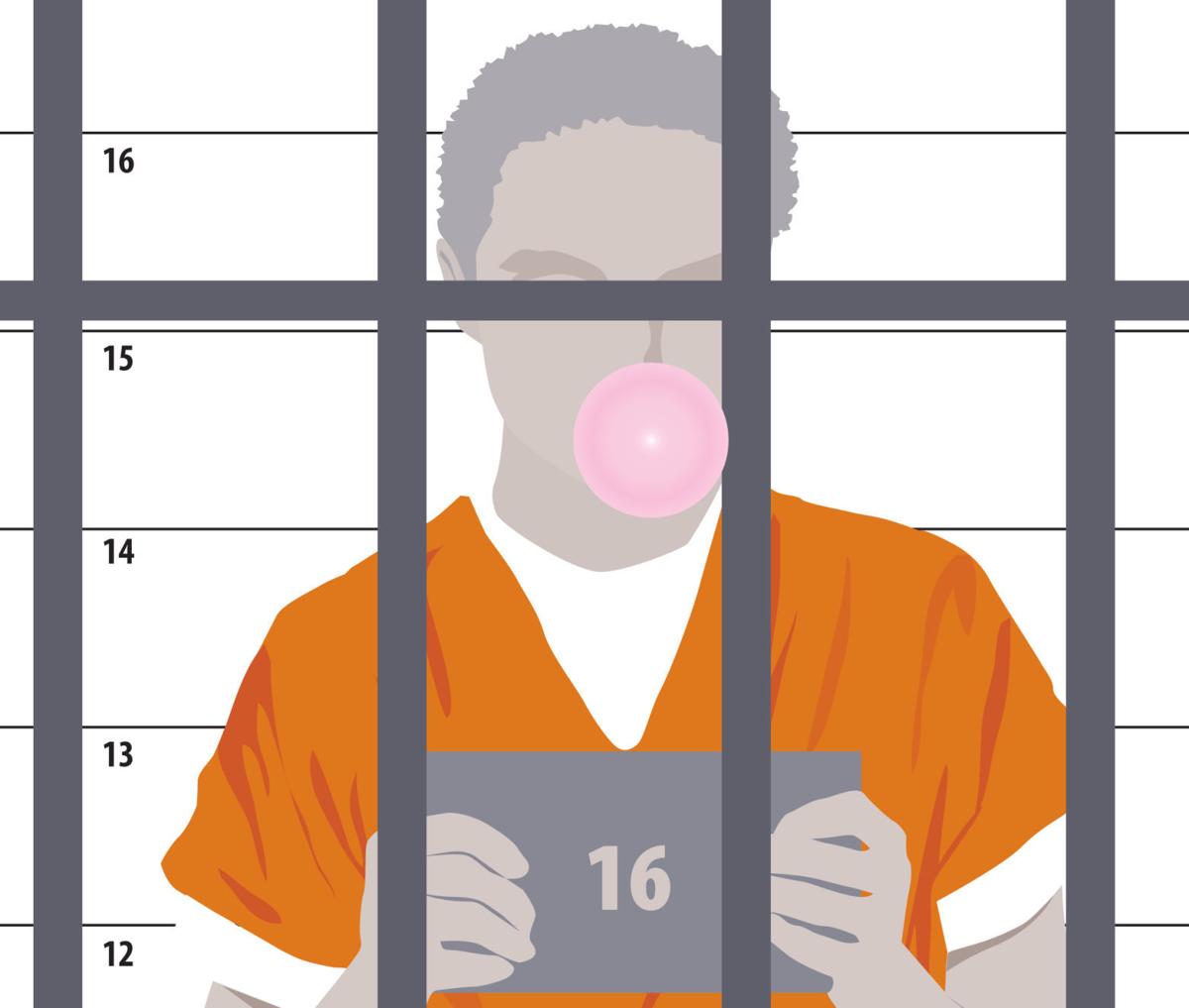France's Juvenile Justice System: Reform Proposals And Increased Punishment

Table of Contents
The Current State of the French Juvenile Justice System
The French juvenile justice system, primarily governed by the Code de la justice pénale des mineurs (CJPM), aims to protect children and adolescents while holding them accountable for their actions. The system prioritizes rehabilitation and reintegration into society, differentiating itself from the adult criminal justice system. Key institutions include specialized courts (tribunaux pour enfants), educational services, and social workers.
- Emphasis on Rehabilitation: The system focuses heavily on rehabilitation through education, social support, and therapeutic interventions, aiming to address the root causes of delinquency.
- Role of Educational and Social Services: A significant portion of the system's resources is dedicated to educational programs, psychological support, and social services aimed at helping young offenders reintegrate into society.
- Criticisms and Recidivism Rates: Despite the focus on rehabilitation, the system faces criticism regarding its effectiveness. Recidivism rates among juvenile offenders remain a concern. While precise, up-to-date statistics are difficult to find consistently compiled in English sources, reports from organizations like Observatoire national de la délinquance et des réponses pénales (ONDRP) should be consulted for the most accurate data on juvenile crime rates in France.
- Juvenile Crime Statistics: The ONDRP provides valuable data on trends in juvenile crime, including types of offenses, demographics of offenders, and geographical variations. Analyzing this data is crucial for evaluating the system's effectiveness and informing policy decisions.
Proposals for Reform: A Focus on Rehabilitation
Many reform proposals aim to strengthen the rehabilitative aspects of the French Juvenile Justice System. These proposals recognize that addressing the underlying social and psychological factors contributing to juvenile delinquency is essential for long-term success.
- Rationale: The rationale behind these proposals is clear: reduce recidivism, improve social outcomes for young offenders, and ultimately, create a safer society. Focusing on rehabilitation offers a preventative approach, breaking the cycle of crime.
- Proposed Changes: Specific changes include increased funding for educational programs within detention facilities and the community, improved access to mental health services for young offenders and their families, and expanding alternative sentencing options such as community service and restorative justice programs.
- NGO Support: Numerous NGOs and child advocacy groups actively support these reform proposals, emphasizing the importance of providing young people with the resources and support they need to succeed.
- Potential Benefits and Drawbacks: The potential benefits include lower recidivism rates, improved social integration, and a more humane approach to juvenile justice. Drawbacks might include increased costs associated with expanded services and potential challenges in implementing comprehensive programs effectively.
Proposals for Reform: A Focus on Increased Punishment
Conversely, other proposals advocate for a stricter approach to juvenile justice, arguing for increased punishment to deter crime and ensure public safety.
- Arguments for Increased Punishment: Proponents argue that harsher penalties will deter young people from committing crimes, emphasizing the need for a strong response to serious offenses. They often point to perceived leniency in the current system as a contributing factor to rising crime rates.
- Proposed Changes: Specific proposals include harsher sentencing guidelines, increased use of detention, and potentially lowering the age of criminal responsibility. The debate frequently revolves around the balance between punishment and the best interests of the child.
- Political and Public Support: Support for these proposals may come from certain political parties or segments of the public concerned about rising crime rates and a perceived lack of accountability for young offenders. Public opinion polls can often reflect the level of support for stricter measures.
- Potential Benefits and Drawbacks: Potential benefits include a perceived increase in public safety and potentially a deterrent effect. However, drawbacks could include an increased likelihood of recidivism due to the negative impact of harsh punishments on rehabilitation efforts, potentially leading to a cycle of incarceration and societal exclusion.
The Debate Over Juvenile Detention
The use of juvenile detention in France is a particularly contentious issue within the broader debate on the French Juvenile Justice System.
- Conditions within Juvenile Detention Centers: Concerns exist regarding the conditions in some juvenile detention centers, with debates about whether they adequately provide for the educational, psychological, and social needs of young offenders.
- Effectiveness of Detention as a Deterrent: The effectiveness of detention as a deterrent is a subject of ongoing debate. Research suggests that lengthy periods of detention may actually increase the likelihood of recidivism.
- Long-Term Effects of Detention: The long-term effects of detention on young offenders, including social stigma, psychological trauma, and difficulties with reintegration, are significant concerns.
- Alternative Methods: Alternatives to detention, such as community-based programs and restorative justice initiatives, are increasingly being explored as more humane and potentially more effective approaches.
Conclusion
The debate surrounding the French Juvenile Justice System is complex, pitting the principles of rehabilitation against the need for public safety. While proposals for increased punishment aim to deter crime and protect society, reform proposals focused on rehabilitation offer a potentially more effective long-term solution by addressing the root causes of juvenile delinquency. Finding the right balance between these two approaches is crucial. Further research and open dialogue are necessary to ensure a just and effective French Juvenile Justice System that both punishes and rehabilitates. To learn more about the ongoing discussions and potential future directions of the French Juvenile Justice System, continue researching the topic and stay informed about upcoming legislative changes. Understanding the nuances of the French Juvenile Justice System is essential for creating a more effective and equitable system for young offenders.

Featured Posts
-
 Waiting By The Phone A Story Of Hope And Despair
May 24, 2025
Waiting By The Phone A Story Of Hope And Despair
May 24, 2025 -
 Should You Buy Apple Stock At 200 A 254 Price Target Analysis
May 24, 2025
Should You Buy Apple Stock At 200 A 254 Price Target Analysis
May 24, 2025 -
 Actress Mia Farrow Seeks Legal Action Against Trump For Venezuela Deportation Policy
May 24, 2025
Actress Mia Farrow Seeks Legal Action Against Trump For Venezuela Deportation Policy
May 24, 2025 -
 Le Borse Crollano A Causa Dei Dazi La Risposta Decisa Della Ue
May 24, 2025
Le Borse Crollano A Causa Dei Dazi La Risposta Decisa Della Ue
May 24, 2025 -
 Apple Stock Slumps 900 Million Tariff Impact
May 24, 2025
Apple Stock Slumps 900 Million Tariff Impact
May 24, 2025
Latest Posts
-
 Mia Farrow On Trump Imprisonment Necessary After Venezuelan Deportation Controversy
May 24, 2025
Mia Farrow On Trump Imprisonment Necessary After Venezuelan Deportation Controversy
May 24, 2025 -
 Actress Mia Farrow Seeks Legal Action Against Trump For Venezuela Deportation Policy
May 24, 2025
Actress Mia Farrow Seeks Legal Action Against Trump For Venezuela Deportation Policy
May 24, 2025 -
 Mia Farrow Calls For Trumps Arrest Over Venezuelan Deportations
May 24, 2025
Mia Farrow Calls For Trumps Arrest Over Venezuelan Deportations
May 24, 2025 -
 Sinatras Four Marriages An Examination Of His Romantic Life
May 24, 2025
Sinatras Four Marriages An Examination Of His Romantic Life
May 24, 2025 -
 Farrow Seeks Trumps Incarceration Focus On Venezuelan Deportations
May 24, 2025
Farrow Seeks Trumps Incarceration Focus On Venezuelan Deportations
May 24, 2025
